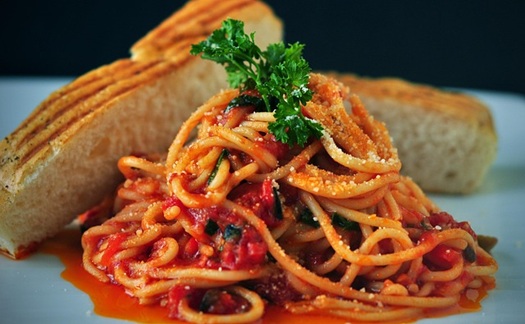Debunking the Myth: Carbs Are Not Your Enemy

Debunking the Myth: Carbs Are Not Your Enemy
Have you ever been told to ditch bread and pasta because carbs are the enemy? This widespread myth paints carbohydrates as the villain behind weight gain and health issues, but science tells a different story. Join us as we unravel the origins of this misconception, explore its cultural variations, and reveal why carbs are a vital part of a healthy diet. Let’s set the record straight and rethink our relationship with carbs!
Origins of the Carbs Are the Enemy Myth
The idea that carbs are the enemy didn’t just appear—it grew from a mix of diet trends and misunderstandings about nutrition. Let’s dive into its roots.
Rise of Low-Carb Diets
In the 1970s, diets like Atkins popularized the idea that cutting carbs leads to weight loss. Early studies linked high-carb diets to obesity, but they often overlooked the role of processed carbs versus whole ones (Harvard Medical School, 2019). This sparked a wave of fear around all carbohydrates.

Media and Misinformation
The media amplified carbohydrate myths in the 1990s and 2000s, with headlines blaming carbs for everything from diabetes to fatigue. Sensationalized diet books and celebrity endorsements fueled the narrative, sidelining balanced nutrition advice.
Cultural Variations of the Myth
The carbs are the enemy myth shifts across cultures, shaped by food traditions and health beliefs.
Western Diet Culture
In the U.S. and Europe, low-carb diets like keto dominate, with carbs often vilified as “fattening.” Supermarkets overflow with “carb-free” products, reflecting a cultural obsession with weight loss over healthy carbs (University of California, 2020).
Asian Perspectives
In countries like Japan and China, rice and noodles are staples, and carbs aren’t demonized. However, urban areas adopting Western diet trends are starting to question healthy carbs, creating a cultural clash (Kyoto University, 2021).
Mediterranean and Latin American Views
The Mediterranean diet, rich in whole grains, embraces carbs as a cornerstone of health. In Latin America, corn and beans are cultural staples, yet global diet fads are pushing some toward low-carb diet skepticism (University of São Paulo, 2020).
South Asian Contexts
In India, carbs from rice and flatbreads are central to meals. While traditional diets balance carbs with vegetables and proteins, Western-influenced urban diets sometimes shun them, echoing carbohydrate myths (Jawaharlal Nehru University, 2022).
Symbolic Meanings of the Myth
Why does the carbs are the enemy myth resonate? It’s more than just nutrition—it’s about deeper societal values.
Control and Discipline
Carbs are often tied to indulgence, while cutting them symbolizes self-control. This reflects a cultural fixation on thinness and discipline, especially in Western societies.
Fear of Excess
The myth paints carbs as a source of “excess”—weight, sluggishness, or disease. It taps into broader anxieties about health and abundance in modern life.
Modern Interpretations and Science
Today’s research flips the script, showing healthy carbs are essential for well-being.
What Are Carbohydrates?
Carbohydrates are your body’s main energy source, found in grains, fruits, vegetables, and legumes. They break down into glucose, fueling everything from your brain to your muscles (National Institutes of Health, 2021). Not all carbs are equal—whole grains beat refined sugars any day.
Benefits of Carbohydrates
- Energy boost: They power daily activities and exercise.
- Brain function: Glucose keeps your mind sharp.
- Nutrient delivery: Whole carbs carry fiber, vitamins, and minerals.
- Mood support: Carbs help produce serotonin, lifting your mood.
Cutting carbs entirely can lead to fatigue, nutrient gaps, and even mood swings (Mayo Clinic, 2022).
Debunking Common Misconceptions
Let’s tackle the biggest carbohydrate myths with hard evidence.
Carbs Make You Gain Weight
Not true—excess calories, not carbs alone, cause weight gain. Whole carbs like oats or quinoa are nutrient-dense and can support weight management when balanced (Stanford University, 2020).
All Carbs Are Bad
Refined carbs (like white bread) spike blood sugar, but healthy carbs like whole grains, fruits, and veggies are linked to lower risks of heart disease and diabetes. It’s about quality, not elimination.
Low-Carb Diets Are Healthiest
Low-carb diets can work for some, but long-term carb restriction may lead to nutrient deficiencies or heart issues. Balanced diets with carbs outperform extreme restrictions for most people (American Heart Association, 2021).
Choosing the Right Carbs
How do you embrace carbs without falling for carbohydrate myths? Focus on quality and balance.
Best Carb Choices
- Whole grains: Brown rice, quinoa, oats for fiber and nutrients.
- Fruits: Apples, berries, bananas for natural sugars and vitamins.
- Vegetables: Sweet potatoes, corn, carrots for slow-release energy.
- Legumes: Lentils, chickpeas, beans for protein and fiber.
These keep you full, energized, and healthy.
Carbs to Limit
- Refined grains: White bread, pastries, sugary cereals.
- Processed snacks: Chips, cookies, sodas with empty calories.
- Added sugars: Candies, sweetened drinks that spike blood sugar.
Moderation here is key to a balanced diet.
Conclusion
The myth that carbs are the enemy stems from outdated diet trends and cultural fears, but science proves carbs are a vital part of health. From powering your body to supporting your mood, healthy carbs deserve a spot on your plate. Ready to bust more diet myths? Explore omnimyths.com for more truth!
Frequently Asked Questions
Q: Why do people think carbs are the enemy?
A: The carbs are the enemy myth grew from low-carb diet fads and media hype, ignoring the benefits of healthy carbs like whole grains.
Q: How do carbs benefit your health?
A: Carbs provide energy, support brain function, deliver nutrients, and boost mood through serotonin production, per healthy carbs research.
Q: What’s the difference between good and bad carbs?
A: Healthy carbs (whole grains, fruits) offer fiber and nutrients; bad carbs (refined sugars, white bread) spike blood sugar with little value.
Q: How can I include carbs in a healthy diet?
A: Choose whole grains, fruits, and veggies, pair with protein and fats, and limit processed carbs for balanced youth mental wellness.
Q: Why do some cultures embrace carbs while others avoid them?
A: Cultures with carb-heavy staples like rice or corn value them, while Western low-carb diet trends fuel carbohydrate myths elsewhere.
Q: How much carbs should I eat daily?
A: Aim for 45–65% of your calories from carbs, mostly whole grains and produce, per dietary guidelines (USDA, 2020).
